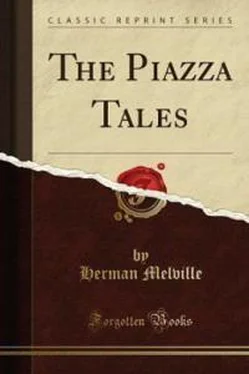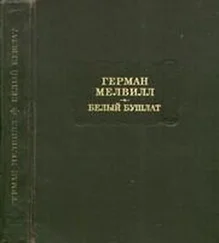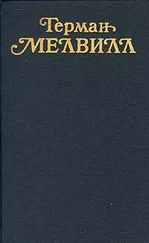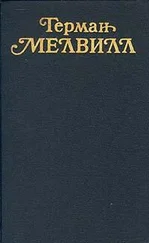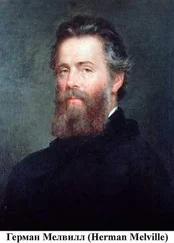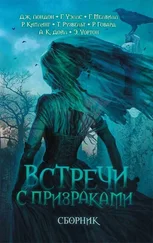Герман Мелвилл - The Piazza Tales
Здесь есть возможность читать онлайн «Герман Мелвилл - The Piazza Tales» весь текст электронной книги совершенно бесплатно (целиком полную версию без сокращений). В некоторых случаях можно слушать аудио, скачать через торрент в формате fb2 и присутствует краткое содержание. Год выпуска: 2014, Издательство: epubBooks Classics, Жанр: Классическая проза, на английском языке. Описание произведения, (предисловие) а так же отзывы посетителей доступны на портале библиотеки ЛибКат.
- Название:The Piazza Tales
- Автор:
- Издательство:epubBooks Classics
- Жанр:
- Год:2014
- ISBN:нет данных
- Рейтинг книги:3 / 5. Голосов: 1
-
Избранное:Добавить в избранное
- Отзывы:
-
Ваша оценка:
- 60
- 1
- 2
- 3
- 4
- 5
The Piazza Tales: краткое содержание, описание и аннотация
Предлагаем к чтению аннотацию, описание, краткое содержание или предисловие (зависит от того, что написал сам автор книги «The Piazza Tales»). Если вы не нашли необходимую информацию о книге — напишите в комментариях, мы постараемся отыскать её.
The Piazza Tales — читать онлайн бесплатно полную книгу (весь текст) целиком
Ниже представлен текст книги, разбитый по страницам. Система сохранения места последней прочитанной страницы, позволяет с удобством читать онлайн бесплатно книгу «The Piazza Tales», без необходимости каждый раз заново искать на чём Вы остановились. Поставьте закладку, и сможете в любой момент перейти на страницу, на которой закончили чтение.
Интервал:
Закладка:
"Surely, Bannadonna," lowly resumed the milder magistrate, "you meant the twelve should wear the same jocundly abandoned air. But see, the smile of Una seems but a fatal one. 'Tis different."
While his mild associate was speaking, the chief glanced, inquiringly, from him to the caster, as if anxious to mark how the discrepancy would be accounted for. As the chief stood, his advanced foot was on the scuttle's curb.
Bannadonna spoke:
"Excellenza, now that, following your keener eye, I glance upon the face of Una, I do, indeed perceive some little variance. But look all round the bell, and you will find no two faces entirely correspond. Because there is a law in art—but the cold wind is rising more; these lattices are but a poor defense. Suffer me, magnificoes, to conduct you, at least, partly on your way. Those in whose well–being there is a public stake, should be heedfully attended."
"Touching the look of Una, you were saying, Bannadonna, that there was a certain law in art," observed the chief, as the three now descended the stone shaft, "pray, tell me, then—."
"Pardon; another time, Excellenza;—the tower is damp."
"Nay, I must rest, and hear it now. Here,—here is a wide landing, and through this leeward slit, no wind, but ample light. Tell us of your law; and at large."
"Since, Excellenza, you insist, know that there is a law in art, which bars the possibility of duplicates. Some years ago, you may remember, I graved a small seal for your republic, bearing, for its chief device, the head of your own ancestor, its illustrious founder. It becoming necessary, for the customs' use, to have innumerable impressions for bales and boxes, I graved an entire plate, containing one hundred of the seals. Now, though, indeed, my object was to have those hundred heads identical, and though, I dare say, people think them; so, yet, upon closely scanning an uncut impression from the plate, no two of those five–score faces, side by side, will be found alike. Gravity is the air of all; but, diversified in all. In some, benevolent; in some, ambiguous; in two or three, to a close scrutiny, all but incipiently malign, the variation of less than a hair's breadth in the linear shadings round the mouth sufficing to all this. Now, Excellenza, transmute that general gravity into joyousness, and subject it to twelve of those variations I have described, and tell me, will you not have my hours here, and Una one of them? But I like—."
Hark! is that—a footfall above?
"Mortar, Excellenza; sometimes it drops to the belfry–floor from the arch where the stonework was left undressed. I must have it seen to. As I was about to say: for one, I like this law forbidding duplicates. It evokes fine personalities. Yes, Excellenza, that strange, and—to you—uncertain smile, and those fore–looking eyes of Una, suit Bannadonna very well."
"Hark!—sure we left no soul above?"
"No soul, Excellenza; rest assured, no soul —Again the mortar."
"It fell not while we were there."
"Ah, in your presence, it better knew its place, Excellenza," blandly bowed Bannadonna.
"But, Una," said the milder magistrate, "she seemed intently gazing on you; one would have almost sworn that she picked you out from among us three."
"If she did, possibly, it might have been her finer apprehension, Excellenza."
"How, Bannadonna? I do not understand you."
"No consequence, no consequence, Excellenza—but the shifted wind is blowing through the slit. Suffer me to escort you on; and then, pardon, but the toiler must to his tools."
"It may be foolish, Signor," said the milder magistrate, as, from the third landing, the two now went down unescorted, "but, somehow, our great mechanician moves me strangely. Why, just now, when he so superciliously replied, his walk seemed Sisera's, God's vain foe, in Del Fonca's painting. And that young, sculptured Deborah, too. Ay, and that—."
"Tush, tush, Signor!" returned the chief. "A passing whim. Deborah?—Where's Jael, pray?"
"Ah," said the other, as they now stepped upon the sod, "Ah, Signor, I see you leave your fears behind you with the chill and gloom; but mine, even in this sunny air, remain, Hark!"
It was a sound from just within the tower door, whence they had emerged. Turning, they saw it closed.
"He has slipped down and barred us out," smiled the chief; "but it is his custom."
Proclamation was now made, that the next day, at one hour after meridian, the clock would strike, and—thanks to the mechanician's powerful art—with unusual accompaniments. But what those should be, none as yet could say. The announcement was received with cheers.
By the looser sort, who encamped about the tower all night, lights were seen gleaming through the topmost blind–work, only disappearing with the morning sun. Strange sounds, too, were heard, or were thought to be, by those whom anxious watching might not have left mentally undisturbed—sounds, not only of some ringing implement, but also—so they said—half–suppressed screams and plainings, such as might have issued from some ghostly engine, overplied.
Slowly the day drew on; part of the concourse chasing the weary time with songs and games, till, at last, the great blurred sun rolled, like a football, against the plain.
At noon, the nobility and principal citizens came from the town in cavalcade, a guard of soldiers, also, with music, the more to honor the occasion.
Only one hour more. Impatience grew. Watches were held in hands of feverish men, who stood, now scrutinizing their small dial–plates, and then, with neck thrown back, gazing toward the belfry, as if the eye might foretell that which could only be made sensible to the ear; for, as yet, there was no dial to the tower–clock.
The hour hands of a thousand watches now verged within a hair's breadth of the figure 1. A silence, as of the expectation of some Shiloh, pervaded the swarming plain. Suddenly a dull, mangled sound—naught ringing in it; scarcely audible, indeed, to the outer circles of the people—that dull sound dropped heavily from the belfry. At the same moment, each man stared at his neighbor blankly. All watches were upheld. All hour–hands were at—had passed—the figure 1. No bell–stroke from the tower. The multitude became tumultuous.
Waiting a few moments, the chief magistrate, commanding silence, hailed the belfry, to know what thing unforeseen had happened there.
No response.
He hailed again and yet again.
All continued hushed.
By his order, the soldiers burst in the tower–door; when, stationing guards to defend it from the now surging mob, the chief, accompanied by his former associate, climbed the winding stairs. Half–way up, they stopped to listen. No sound. Mounting faster, they reached the belfry; but, at the threshold, started at the spectacle disclosed. A spaniel, which, unbeknown to them, had followed them thus far, stood shivering as before some unknown monster in a brake: or, rather, as if it snuffed footsteps leading to some other world.
Bannadonna lay, prostrate and bleeding, at the base of the bell which was adorned with girls and garlands. He lay at the feet of the hour Una; his head coinciding, in a vertical line, with her left hand, clasped by the hour Dua. With downcast face impending over him, like Jael over nailed Sisera in the tent, was the domino; now no more becloaked.
It had limbs, and seemed clad in a scaly mail, lustrous as a dragon–beetle's. It was manacled, and its clubbed arms were uplifted, as if, with its manacles, once more to smite its already smitten victim. One advanced foot of it was inserted beneath the dead body, as if in the act of spurning it.
Uncertainty falls on what now followed.
It were but natural to suppose that the magistrates would, at first, shrink from immediate personal contact with what they saw. At the least, for a time, they would stand in involuntary doubt; it may be, in more or less of horrified alarm. Certain it is, that an arquebuss was called for from below. And some add, that its report, followed by a fierce whiz, as of the sudden snapping of a main–spring, with a steely din, as if a stack of sword–blades should be dashed upon a pavement, these blended sounds came ringing to the plain, attracting every eye far upward to the belfry, whence, through the lattice–work, thin wreaths of smoke were curling.
Читать дальшеИнтервал:
Закладка:
Похожие книги на «The Piazza Tales»
Представляем Вашему вниманию похожие книги на «The Piazza Tales» списком для выбора. Мы отобрали схожую по названию и смыслу литературу в надежде предоставить читателям больше вариантов отыскать новые, интересные, ещё непрочитанные произведения.
Обсуждение, отзывы о книге «The Piazza Tales» и просто собственные мнения читателей. Оставьте ваши комментарии, напишите, что Вы думаете о произведении, его смысле или главных героях. Укажите что конкретно понравилось, а что нет, и почему Вы так считаете.
